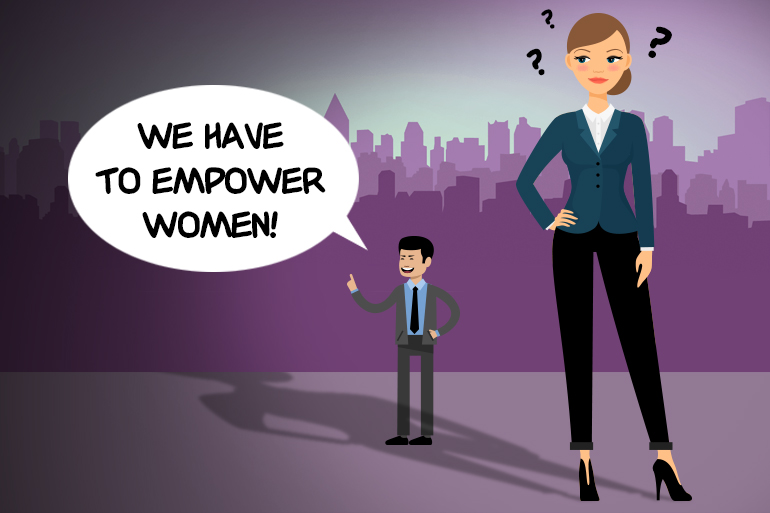Not even close, say some of the region’s top marketing talent at The Marketing Society’s latest Brave Conversations…
‘Brave Conversations’ is a series of quarterly roundtables held by The Marketing Society and Communicate. The candid chats bring together marketing and advertising experts to discuss, debate and challenge both, new and existing topics that are of increasing importance to not just our industry, but to our audiences.
This edition of Brave Conversations focused on female empowerment – specifically mums in the workplace – and was attended by challengers from companies including EY, IBM, Hanson Search, House of Comms, Mondelez, Mums @ Work and Serviceplan.
In 2015, EY worked closely with the World Economic Forum to determine how many years it would take to truly reach gender parity. Research concluded that in 2015, it would take 117 years. Fast forward three years, and it’s now at 216 years – in just 36 months, we’ve managed to go backwards by 99 years. It’s a staggering figure; particularly in light of all of the pro-female conversation that’s taking place globally at this very moment. It seems, from the outside, that the world is making huge changes to ensure men and women are viewed and treated equally, and yet, sitting around a table with some of the Middle East’s leading marketing talents for the latest edition of Brave Conversations, the experiences reflect the exact opposite.
“Sponsorship is not a gamble, it’s a risk-averse bet”
One of the biggest discussion points of the morning was around the idea of sponsorship. In a corporate context, sponsorship refers to the relationship that exists between two colleagues for the benefit of their careers. Similar to mentorship, sponsorship is about helping others “get a leg up” and investing in someone else’s career and development as you would your own.
EXCLUSIVE: Hearts & Science’s Fadi Maktabi on digital, data & everything in between
However, as one attendee explained, “Sponsorship is selfish. It only works if you’re getting something back. Sponsorship is not a gamble, it’s a risk-averse bet.” Many companies have tried to implement sponsorship programs but have found that forcing relationships rarely results in success for either party. Additionally, these programs bring to the surface concerns over the longevity of the careers of the people they are sponsoring – specifically, women. The very real possibility of maternity leave or marriage inhibits the desire to sponsor women, which is why there was a general consensus around the table that open conversations with women concerning their future plans are important.
It was an interesting viewpoint, particularly given the illegality of similar conversations in other countries like North America, the UK and Australia, for example. However, by determining the goals and plans of women within an organization, many believed there was greater opportunity for success overall. “Having these conversations allows you to mold their career paths as well,” one guest said. “It might not be right for them at that moment, but it might be later on down the line when their children are at school.” But, as one gentleman noted, these conversations can be a “double-edged sword” as they can lead to unconscious labeling or bias as a result of the honesty.
“Just because I don’t have children, doesn’t mean I don’t have a family”
Another key idea discussed during the morning’s meeting was the detrimental impact that ‘women’s’ empowerment’ initiatives are having. For example, having to specifically label events or panels as ‘Women In Tech’ or the like reduces their accomplishments from the outset.
VIDEO: Why retailers need to up their Twitter game in November
It was agreed that the seemingly endless need to bring gender into the conversation further polarizes the sexes. Furthermore, the overuse of the term ‘empowerment’ in relation to women assumes they don’t have the power to begin with. Yet, it was agreed that it’s less about power (which women already have) and more about being given equal and fair opportunities to succeed. It was also noted by one attendee that women’s empowerment initiatives don’t always apply to all women. Oftentimes, women policies apply only to women with children, and women without children are not afforded the same benefits. “Just because I don’t have children, doesn’t mean I don’t have a family,” she poignantly explained.
It was agreed that the Middle East is moving ahead in leaps and bounds when it comes to women’s empowerment and that the government is leading by example with what we’re trying to achieve. However, companies in the region and beyond need to stop treating ‘women’s empowerment’ programs as CSR initiatives that look good on their websites and deliver very little else to the people they are purportedly supporting.
EFFIE EXCLUSIVE: What is marketing effectiveness?
But how to affect change? Many present at the discussion believe it needs to begin in schools in order to eradicate the potential for bias to develop long before it is inherently accepted as normal. Gen Y was also credited with being the leaders to be able to pass knowledge on. For companies, the message, as stirringly shared by one guest, is simple: “The conversation needs to go back to talent and not ‘women empowerment’.”




